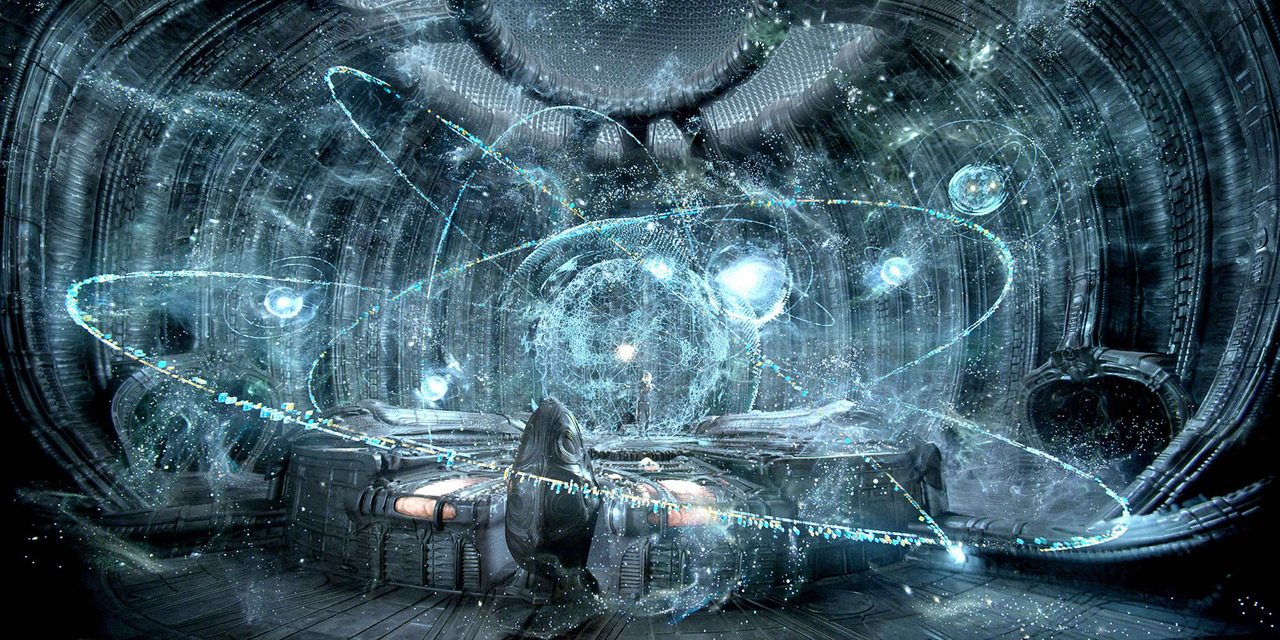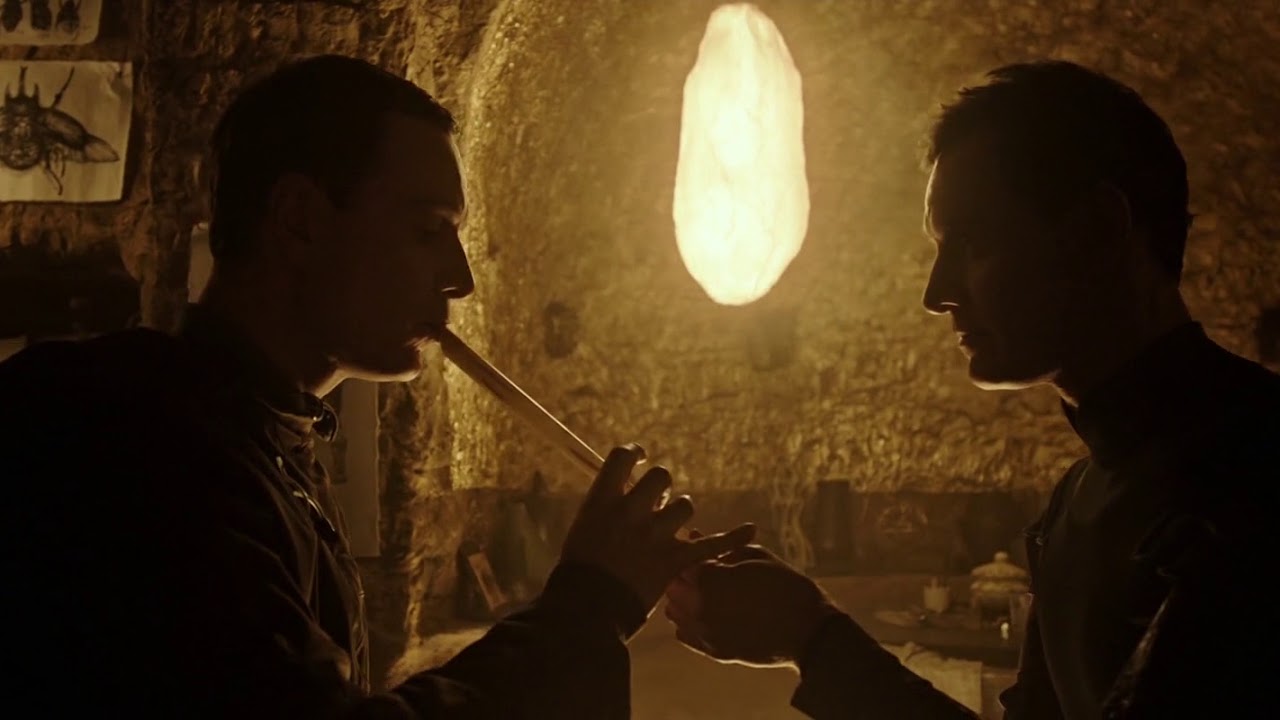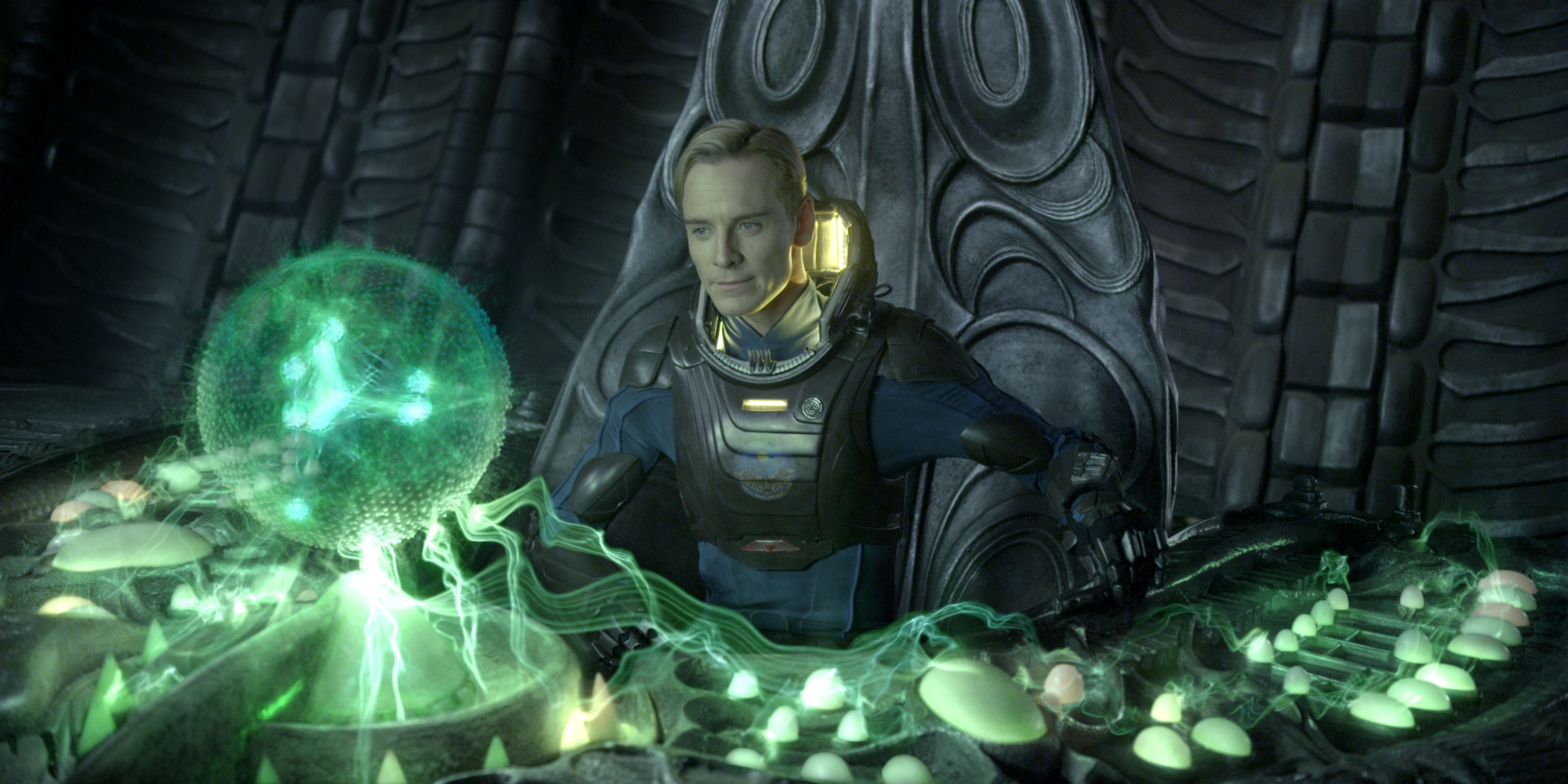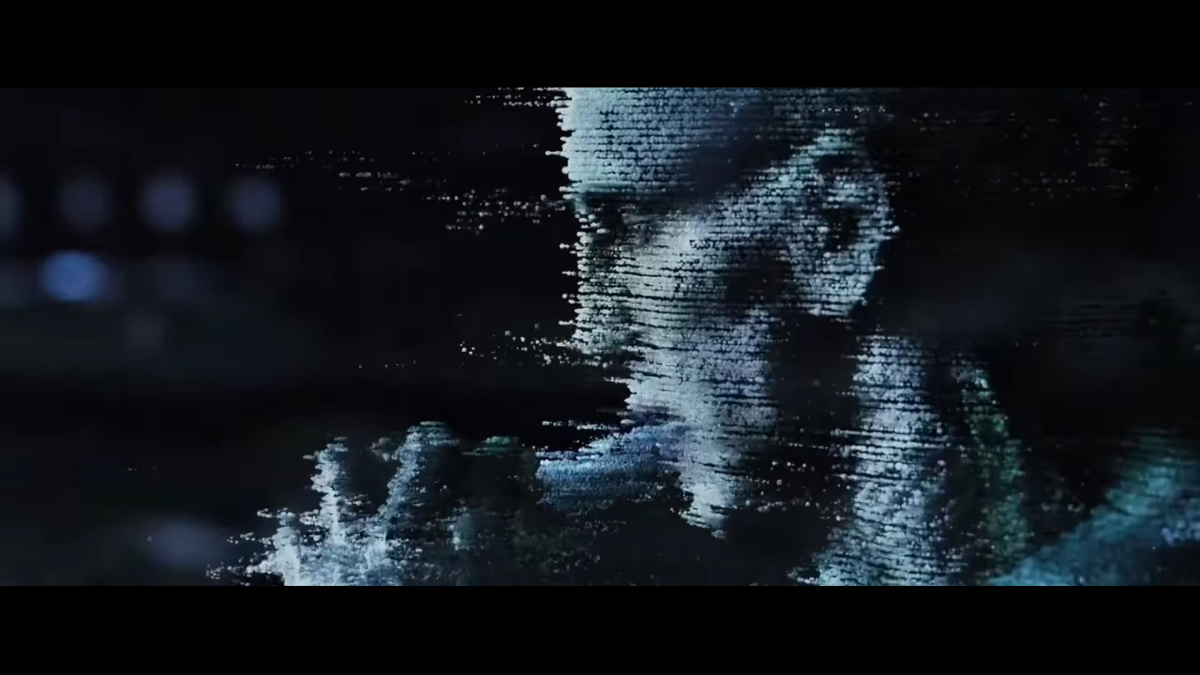Prometheus and Alien: Ridley Scott’s Feeling for Flutes
Ridley Scott’s Alien prequels, Prometheus and Alien: Covenant, have a strange recurring motif - flutes. We investigate further...
The following contains spoilers for Prometheus and Alien: Covenant.
Forgive us, dear reader: we can’t stop thinking about the flutes. It’s now six years since the release of Prometheus – Ridley Scott’s belated return to the Alien universe, and a prequel to the 1979 film that started it all – but still, the flute sticks in our minds.
There was much that was good and even spectacular about Prometheus: its sense of texture and scale, the air of mystery and the excitement of discovery, the sheer detail put into its production design. But there was also much that was awkward and sometimes plain baffling about it: its bickering, neurotic human characters, who seemed less like scientists and more like Muppets let loose in Manhattan. The sight of Guy Pearce, a relatively young actor fighting to emote from under a inch-thick layer of old-man makeup. The race of profoundly bald, high-tech aliens, dubbed Engineers, whose ships are unaccountably activated by playing a flute.
Given the sheer number of questions Prometheus left behind when it appeared in 2012, you might be wondering why it’s the flute, of all things, that stays with us. Maybe it’s partly because the flute, as incidental a detail as it is, sums up so much of what felt ungainly about Prometheus as a whole. Where Alien was a simple story created and designed with clockwork precision, with every concept and detail clicking tidily into place, bits of Prometheus felt arbitrary – design decisions made just because; mysteries added for the sake of adding mysteries.
Viewed like this, the flute is a symptom of the same problem that gave us other weird scenes in the movie: why did protagonist Elizabeth Shaw (Noomi Rapace) take a decapitated alien head and put so many volts of electricity into it that it exploded? Come to think of it, why did it explode, anyway? Why was the film set at Christmas?
Admittedly, some of Prometheus’ more obscure points were resolved by the time of its Blu-ray release – the Christmas theme appeared to be the last remnant of an early script idea where Jesus was revealed to be one of those alien Engineers (which merely begs another question: why not drop the Christmas theme, too?). But still, the flute remained a subject of morbid fascination – particularly when the cursed instrument became such a prominent feature in the sequel, 2016’s Alien: Covenant.

In that film, another ship full of unsuspecting explorers touches down on a godforsaken planet and succumbs, one by one, to a terrible alien force. The difference this time is that there are two Michael Fassbenders for the price of one. The first is David, the renegade android who caused so much chaos in Prometheus; in the gap between movies, he’s moved to an uncharted planet, eviscerated Elizabeth Shaw, and used her remains to create a kind of prototype of the xenomorph. The second Fassbender is Walter: a gentle android who’s fresh off the production line and less glitchy than David. With a soft American accent, Walter’s the Judge Reinhold to David’s sinister, space-going Lord Byron – benign and protective where David’s all cold, murderous invention.
For all the blood and guts in Alien: Covenant, the scene that lodged in our mind the most involved wind instruments. You may also remember it: David and Walter tucked away in the former’s private lodgings, a cramped, candle-lit cave full of his etchings and weird experiments. There, unexpectedly, David showed Walter how to play the flute.
“Here,” David said, guiding Walter’s uncertain hand, “I’ll do the fingering.”

It was a scene charged with an eroticism that Scott may or may not have intended; certainly, it’s about as close as we’ll get to Ghost’s infamous potter’s wheel scene in an Alien movie. The flute scene also triggered old questions. While the instrument in Prometheus could have been written off as an incidental detail that our diseased minds couldn’t help but obsess over, its reappearance in Alien: Covenant turns it into a recurring theme. So what’s going on?
Our quest for the truth first began in the autumn of 2012. Back then, Prometheus was about to emerge on Blu-ray, and we were fortunate enough to speak to Dr Anil Biltoo, the linguist who provided the baroque-sounding alien language in the film. Given his knowledge of Indo-European languages, could it be that the flute was his suggestion?
“That wasn’t in the script,” Dr Biltoo said, “and I have to say, I was quite shocked when I saw how they used that.”
Rather, Dr Biltoo explained, the Engineers’ ship was described as being voice-activated – a technology more in keeping, you might think, with an advanced alien race:
“There were some voice-activated sequences where Fassbender’s moving around the pyramid and he reads glyphs. He reads a writing system that seems to make sense to him. Now, in the script, he utters a sequence of words, and nothing happens. So he repositions the intonation, and something happens. The consoles light up on the craft, because they’re speech activated. In the original script, they are not activated by flute.”

We later verified all this for ourselves when copies of both an early draft of the script by Jon Spaihts and a later, rewritten shooting script by Damon Lindelof emerged on the web: sure enough, neither mentions a flute. There was scant mention of the instrument on Prometheus’ Blu-ray extras, either; all Spaihts would say on the matter, during his candid commentary track, was “I’m not sure I’m sold on the whistle or the silly putty eggs either” – the latter being a reference to the squishy buttons we see on the ship’s console.
It was clear, then, that the flute wasn’t the product of Spaihts or Lindelof, or the language advisor. Our best guess at the time was that Ridley Scott himself had come up with the idea, perhaps in conjunction with his production designer Arthur Max. It’s clear from the Blu-ray’s making-of documentary that Scott and Max worked closely on the look of Prometheus, and so a moment like David powering up a ship with a tin whistle wouldn’t have gone by without Scott commenting on it.
We found at least a shred of evidence later in that documentary, directed by Charles De Lauzirika. One telling scene shows Scott browsing a table of props, picked out by the designers for possible use in the film. Scott treats the opportunity like a big-budget car boot sale – grabbing items that catch his eye, and suggesting where they could go or which character might handle them. Our hunch is that, while browsing this table of bric-a-brac, Scott picked up a flute and suggested that it could go inside the Engineers’ ship. Further evidence for this emerged a few years later, when an image of Ridley Scott, playing the flute prop on the set of Prometheus, emerged on Twitter. It’s not quite a smoking gun, but a flute-playing director’s at least pretty close.
For years, that seemed to be as far as we could get with the flute mystery. But then, in 2017 – almost exactly five years after we talked to Anil Biltoo – we finally got to raise the subject with Ridley Scott. Ostensibly, Scott was in the country to promote Blade Runner 2049 – the sequel to his own 1982 classic, which he produced and Denis Villeneuve directed. But Scott’s mind is far too alive and restless to stick to one topic for long, and so our conversation veered quite dramatically from Blade Runner to World War II bombs to the question of whether Leonardo da Vinci was some form of artificial intelligence.
From there, Scott began to muse on the subject of ancient aliens – and whether the extraordinary creativity displayed by someone like Da Vinci or Mozart might have been the result of an intervention by an extraterrestrial power. Seizing the moment, we asked: was that why the flute was in Prometheus and Alien: Covenant? Was it Scott’s way of saying that music was something given to us by ancient aliens?
“Well, yeah,” Scott said, as though it was the most obvious thing in the world. “The flute would probably be the most basic instrument – you get a reed, you punch a hole through it, blow, and you get sound. So I felt the flute was the most basic of all instruments – the air. Or you could have percussion, drums. But I think it was air, to get an interesting, magical sound. But I always revolve around the idea of, I like the genius of Michelangelo. In terms of his brain, his mathematical, engineering, artistic mind. It makes him one of the absolute greats, really. He was 100 years ahead of his time. So yeah, the flute is a symbol of simplicity, but also, it’s a sonic lock: you play the right notes, it opens a door.”

This, it seems, is pretty much a definitive answer: the flute was Scott’s addition to Prometheus, born from his apparently sincere belief that what we see at the start of the movie – life started on an Earth-like planet by Engineers – also happened in our reality.
“I believe in that possibility way more than I believe in the Holy Bible,” Scott told us, emphatically.
For Scott, then, the Engineers are both advanced and ancient: capable of building vast interstellar ships, and even able to tinker with the properties of life itself, yet still in touch with the analogue creativity that they passed on to our species: sculpture, murals covered in elaborate texts, flute-based ignition systems. In ancient myth, Prometheus stole fire from the gods; in Scott’s mythology, Engineers passed on the flute – the first instrument, a symbol of creativity as a whole – to humans. David teaching Walter how to play was a similar thing: one being passing on the gift of music to another.
It’s also possible that the Engineers’ ignition flute references back to Alien, albeit in a subtle way. The 1979 film opens with Jerry Goldsmith’s haunting melody – a piping, two-note theme that sounds like something beamed in from an alien radio station. Although the musical instrument isn’t a flute, it certainly sounds like some kind of unholy wind instrument; famously, Goldsmith hated working on Alien, particularly when his more intricate, romantic orchestral score was rejected in favour of this, more stripped-down music and, elsewhere, library music he’d composed for another movie entirely.

As jarring as the sight of a seven-foot-tall, pale Engineer playing a little tin instrument was in Prometheus, maybe this, and the erotic fluting in Alien: Covenant, are all part of Scott’s grand plan. Scott’s ideas can range from the masterful to the baffling and many points in between, and his insistence on doing things a certain way can sometimes infuriate the people he works with – just ask Goldsmith, who called working on Alien “one of the most miserable experiences I’ve ever had working in this profession.”
To us, the flute seemed rather strange in 2012, and in many ways it still does. But listening to Scott explain it, the flute begins to sound curiously logical – and it clearly holds a personal meaning for him. After all, creativity and ancient aliens are, for better or worse, the backbone of his Alien prequel movies. Engineers possess a kind of black goo that can both create and destroy; David, in his solitude, kills and dissects living things in the hope of creating something new and predatory – thus making the “perfect organism” the crew of the Nostromo met in 1979‘s Alien.
Whatever you think of Prometheus and Alien: Covenant, they’ve at least been made with their own twisted sense of purpose.